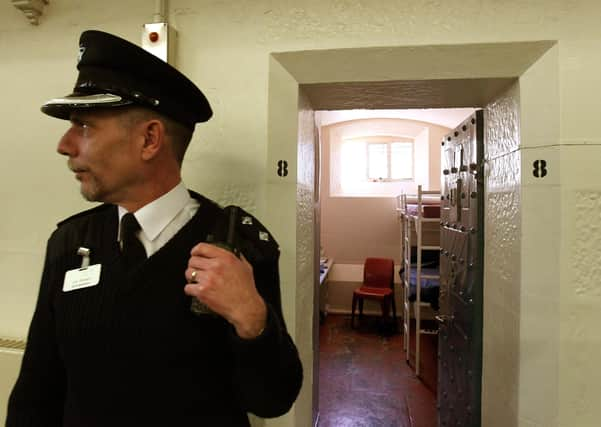How coronavirus has finally helped us to see prison inmates as human beings – Karyn McCluskey


Abraham Lincoln said ‘I am a firm believer in people’ – and if you weren’t before this global pandemic, I’m sure you are now. There have been some incredible examples of people and companies all over the country putting their fellow human beings before profit, self-interest and in many cases, their own health and safety. It is a frightening time but neighbours who have never spoken forming street Whatsapp groups, messages and pictures posted in windows to cheer passing strangers and the myriad offers of shopping trips for the elderly and vulnerable are uplifting demonstrations of how much we need each other and how important human connection is.
There has been so much written over the past decade about how social media has changed how we relate to each other, that we are more isolated and insular than ever before – and yet, here we are furiously connecting, seeking each other out and doing our bit for others. We see each other. We are urged to show empathy, compassion and kindness for our neighbours – and we naturally want to. The rhetoric of tough and soft has been abandoned; all we want is to be safe and for others to be safe too.
Advertisement
Hide AdAdvertisement
Hide AdSuddenly problems that were ‘too big’ and ‘too hard’ and that we preferred to turn a blind eye to are being addressed – imperfectly perhaps, but still. We are housing the homeless, we are increasing financial support for those that need it, we are producing more hospital beds, workplaces are flexing to accommodate working parents; the much-maligned glut of Edinburgh Airbnbs are being used to house families, formerly living in unsuitable bed and breakfast accommodation. And, that impossible, unsolvable problem of our out-of-control prison population? As a consequence of this public health crisis, we are going to address that too.
Last week, Justice Minister Humza Yousaf announced that those nearing the end of their sentences could be released imminently. But, in contrast to the outraged reaction we accept as part of justice entering the gladiatorial arena of public debate, there was... nothing. No front page headlines screaming for more degradation of those inside our prisons, no columns slamming the government for soft justice.
Instead, the true horror of what a perfect breeding ground our overcrowded prisons are, and the fear felt by those inside, has resonated across political, ideological and geographical boundaries. The suspension of family visits has also produced a spasm of long absent compassion for those behind bars. Why? Over centuries, we have grown and fed our belief that those in prison are undeserving of anything but the most basic requirements of life. Annual outrage about Christmas dinners, regular pearl-clutching about access to televisions and game consoles and even grumbles about the banning of slopping out are all part of the tired fabric of public debate about prisons. We have become comfortable with the idea that prisoners aren’t really people. Not people like us.
And yet, here we are, in governments across the country and indeed the world, quietly making the right decisions about those imprisoned, with humanity and a level head. No howls of outrage or anger. It has taken a public health catastrophe to finally see those in prison as human beings – as fathers and mothers, sons and daughters. We see their families and the pain and worry it causes them, knowing their relative is at such risk. We all understand how indiscriminate this virus is and that keeping every one safe, keeps us all safe. That no one should be put needlessly in the path of infection or death. We are all the same now – same fears, same desires, same needs. Yes, I am a firm believer in people – and I hope, when we reach the future new normal, we look back and remember the time when we looked at others and saw ourselves.